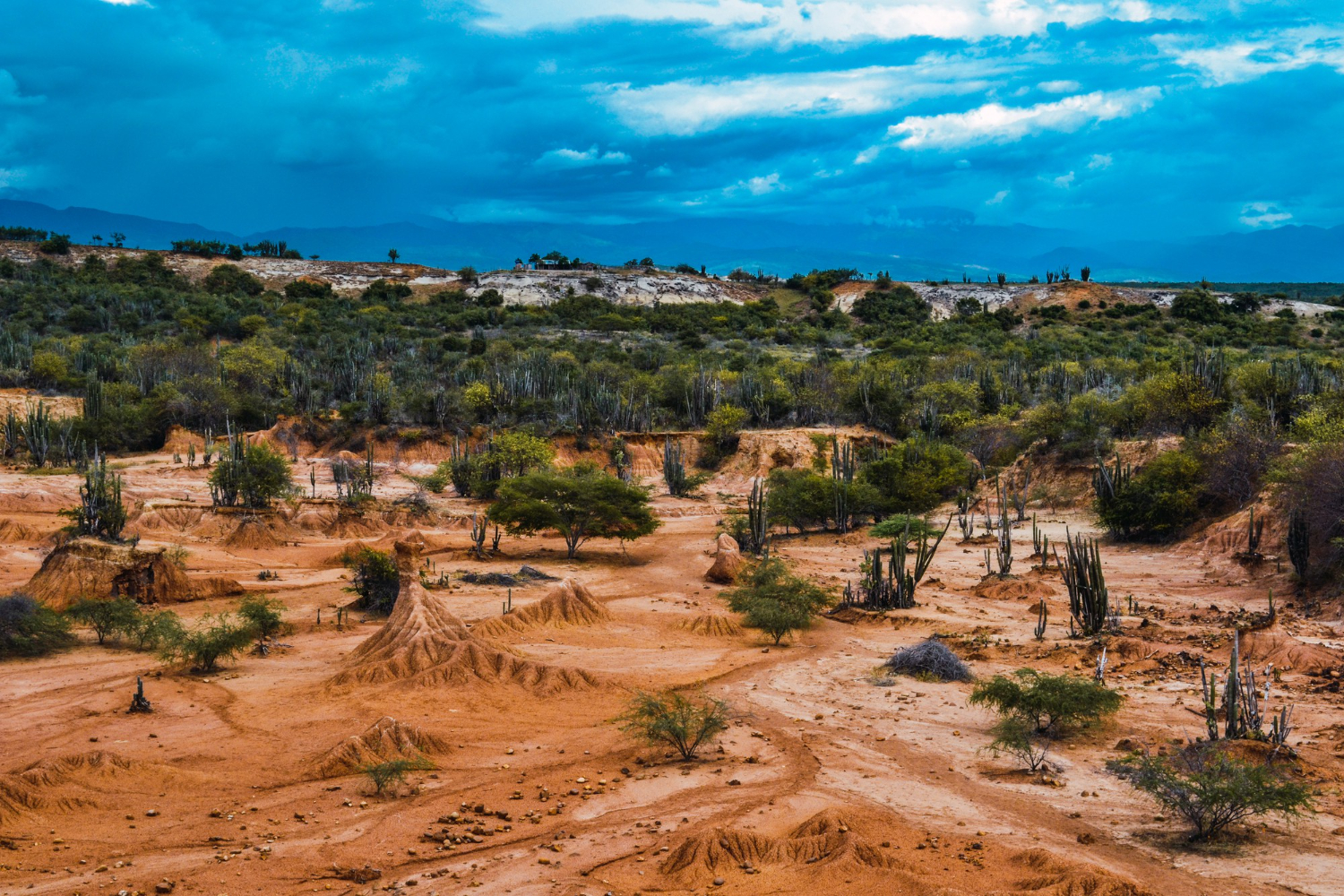Nigeria
Nigeria Country Guide

Nigeria is a country located in West Africa, bordering the North Atlantic Ocean between Benin and Cameroon. Nigeria has a diverse geography, with climates ranging from arid in the north to humid equatorial in the south.
Nigeria is the most populous country in Africa and the sixth-most populous country in the world, with a population of over 230 million as of 2024.
Things To Know Before Going To Nigeria
Here are some key things to know before visiting Nigeria:
- Make sure your passport is valid for at least six months beyond your planned stay.
- Apply for a visa well in advance, as the process can be time-consuming.
- Get recommended vaccinations for yellow fever, hepatitis A, and typhoid.
- Take malaria prophylaxis medication and use insect repellent to prevent malaria.
- Stay informed about the current security situation and have a backup plan.
- Pack light, loose clothing suitable for hot, humid weather.
- Bring a portable charger and travel adapter with USB ports.
- English is widely spoken, but learning a few phrases
- Bargaining is expected, so negotiate prices, especially for taxis and market goods.
- Carry sufficient cash in Nigerian Naira, as it's the preferred payment method.
- Try local Nigerian dishes like jollof rice, egusi soup, pounded yam, etc.
- Eat with your right hand or a spoon, as using the left hand is considered rude.
Is Nigeria Expensive To Visit?
Nigeria can be an affordable destination, especially compared to other popular tourist destinations in Africa. However, the cost of your trip will depend on various factors, including your travel style, accommodation choices, and activities. Nigeria ranks as the 64th most affordable country out of 195 countries globally, indicating that it is relatively cheaper than many other nations.
Is Going Visiting Nigeria Worth It?
Yes, visiting Nigeria can be a worthwhile and rewarding experience. Nigeria is a diverse country with a rich cultural heritage, offering visitors the opportunity to immerse themselves in a vibrant and fascinating society. The country boasts stunning natural landscapes, including waterfalls, beaches, and wildlife reserves that are worth exploring.
Is Nigeria Safe For Travelers?
Traveling to Nigeria involves several safety considerations. Nigeria has a high level of crime, including armed robbery, kidnapping, and civil unrest. Petty crimes like pickpocketing and scams are also common, particularly in urban areas. There is a significant threat of terrorism, especially in the northern regions where groups like Boko Haram and ISWAP operate.
Travelers should avoid the northeastern states of Adamawa, Borno, and Yobe, as well as parts of the Niger Delta. These areas are prone to violence and kidnappings. Using public transport is discouraged due to safety risks. Taxis and buses can be poorly maintained and present a risk of theft or attack.
Are Nigerians Friendly?
Yes, Nigerians are generally known for being friendly and welcoming to visitors. With an open mind and a willingness to engage with locals, visitors can have very positive and memorable experiences interacting with Nigerians.
Best Cities In Nigeria
Here’s a guide to some of the best cities in Nigeria, tailored for different types of travelers, including families and nature lovers.
| City Name | Best For | Best Attractions | Average Trip Cost |
|---|---|---|---|
| Lagos | Families | 1. Lekki Conservation Centre 2. Nike Art Gallery 3. Tarkwa Bay Beach 4. Park Vega Waterpark 5. Rufus and Bee Twin Waters | $500 - $1,000 |
| Abuja | Families | 1. Millennium Park 2. Magicland Amusement Park 3. National Children’s Park and Zoo 4. Aso Rock 5. Bature Brewery | $600 - $1,200 |
| Calabar | Nature Lovers | 1. Obudu Mountain Resort 2. Cross River National Park 3. Drill Ranch 4. Calabar Carnival 5. Slave History Museum | $400 - $800 |
| Enugu | Culture Enthusiasts | 1. Ngwo Pine Forest 2. National Museum of Unity 3. Awhum Waterfall 4. Ogbunike Caves 5. Enugu Golf Club | $300 - $700 |
| Ibadan | History Buffs | 1. Cocoa House 2. University of Ibadan 3. Agodi Gardens 4. Ibadan National Museum 5. Mapo Hall | $300 - $600 |
Best Attractions In Nigeria
Here’s a bullet list of some of the best attractions in Nigeria:
- Olumo Rock (Abeokuta) - A historical landmark with natural caves and stunning views.
- Lekki Conservation Centre (Lagos) - A nature reserve featuring the longest canopy walkway in Africa.
- National Museum (Lagos) - Showcases Nigeria's rich history and cultural heritage, including artifacts and traditional art.
- Erin Ijesha Waterfalls (Osun State) - A beautiful natural cascade perfect for swimming and hiking.
- Ikogosi Warm Springs (Ekiti State) - A unique site where warm and cold springs meet, offering therapeutic benefits.
- Zuma Rock (Abuja) - An iconic rock formation and a popular site for photography and sightseeing.
- Cross River National Park (Cross River State) - A biodiversity hotspot with lush rainforests and wildlife.
- Aso Rock (Abuja) - A prominent rock formation that is a symbol of Nigeria's capital city.
- Tarkwa Bay Beach (Lagos) - A sheltered beach ideal for swimming and water sports.
- National Arts Theatre (Lagos) - A cultural landmark hosting various performances and art exhibitions.
- Gashaka Gumti National Park (Taraba State) - Nigeria's largest national park, known for its diverse wildlife and stunning landscapes.
- Obudu Mountain Resort (Cross River State) - A beautiful resort with breathtaking views, hiking trails, and a cable car.
- Freedom Park (Lagos) - A memorial and leisure park that preserves the cultural heritage of Nigeria.
- Mambilla Plateau (Taraba State) - Known for its scenic beauty, tea plantations, and cool climate.
- Port Harcourt Pleasure Park (Port Harcourt) - A family-friendly amusement park with various recreational activities.
The Best Time To Visit Nigeria
The best time to visit Nigeria is in November and March. During this period, you can enjoy the dry, cooler weather and participate in local festivities. If you prefer fewer crowds and lower prices, consider visiting during the rainy season, but be prepared for occasional downpours.
Month | Season | Avg. Temperature (°C) | Avg. Days of Rainfall |
|---|---|---|---|
| January | Dry | 26 | 0 |
| February | Dry | 28 | 0 |
| March | Dry | 30 | 2 |
| April | Wet | 30 | 9 |
| May | Wet | 29 | 13 |
| June | Wet | 27 | 14 |
| July | Wet | 27 | 16 |
| August | Wet | 26 | 15 |
| September | Wet | 27 | 13 |
| October | Wet | 27 | 9 |
| November | Dry | 28 | 1 |
| December | Dry | 27 | 0 |
Where Is Nigeria?
Nigeria is located on the West Coast of Africa. It shares borders with Benin to the west, Niger to the north, Chad and Cameroon to the east, and the Gulf of Guinea to the south.
What Is The Capital Of Nigeria?
The capital of Nigeria is Abuja. It is located in the Federal Capital Territory (FCT) and was officially designated as the capital in 1991, replacing Lagos. It is situated in the central part of the country, making it accessible from various regions, and features notable landmarks such as Aso Rock and the Nigerian National Mosque.
Nigeria Language
- English is the official language of Nigeria. It was chosen to promote national unity and isused for government, education, and business.
Major Indigenous Languages
- Hausa: Widely spoken in the north and serves as a lingua franca in many parts of the country.
- Yoruba: Predominantly spoken in the southwestern region.
- Igbo: Mainly spoken in the southeastern region.
- Fulfulde: Spoken by the Fulani people, primarily in the northern regions.
- Kanuri: Mainly spoken in the northeastern part of Nigeria.
Time Zone Of Nigeria
Nigeria operates on West Africa Time (WAT), which is UTC+1. This time zone is used throughout the country year-round, as Nigeria does not observe daylight saving time.
What Currency Does Nigeria Use?
Nigeria uses the Nigerian Naira (NGN) as its official currency, and the symbol is ₦.
Flag Of Nigeria
The flag of Nigeria consists of three vertical stripes: two green stripes on the outer edges and white stripes in the center. The green stripes represent Nigeria’s rich agricultural resources, while the white stripe symbolizes peace and unity.
What Is The Population Of Nigeria?
The population of Nigeria is estimated to be around 229.5 million as of July 2024. Around 42.5% of Nigeria's population is 14 years or younger, while only 3.1% is aged 65 and above.
Strange Laws In Nigeria
- If you promise to marry someone and fail to keep that promise, you can be sued in court for breach of promise to marry.
- Representing oneself as a witch or claiming to possess the power of witchcraft is considered a misdemeanor punishable by up to 2 years in prison.
- The Army Colour (Prohibition of Use) Act prohibits painting private cars in the color known as 'army green.
- Offering a reward for the return of stolen property without asking questions is illegal.

